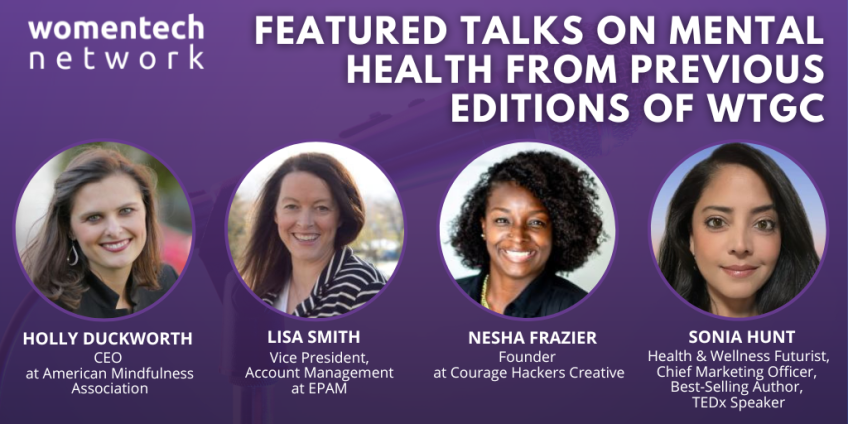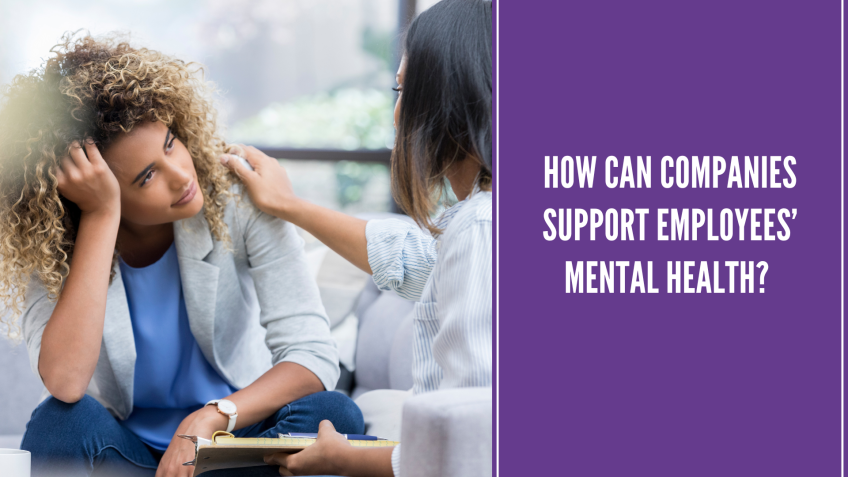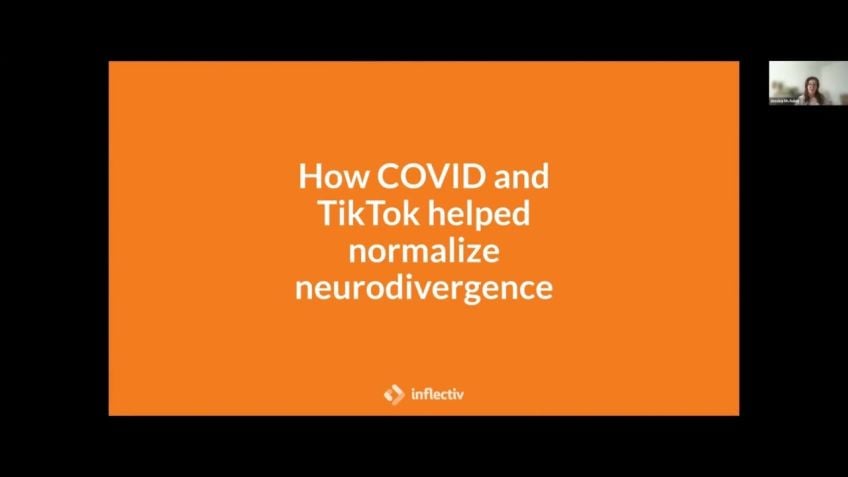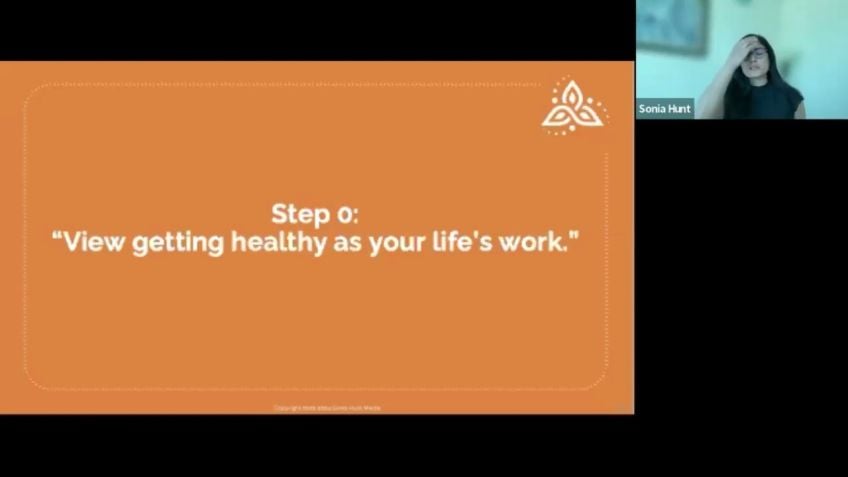Navigating Careers and Mental Health by Priyanka Gangishetty
Engaging in Mental Health Conversations: A Personal Journey
Most of us tend not to discuss mental health freely. However, in the wake of COVID-19, we've been gifted an opportunity to share our struggles and journeys, raising more awareness around this vital topic.
Meet Priyanka: A Senior Customer Engineer at Microsoft, she faces a personal battle with mental health issues, and aims to share her journey in an attempt to shed more light on this complex and still somewhat misunderstood topic.
Understanding Mental Health and its Impact
Mental health is not merely the absence of mental disorders. Instead, it's a state of well being, a state where we can be our best selves regardless of the stresses of daily life. From Priyanka's personal experiences, she reasons that the mind should be viewed much like the rest of our body - an organ that can fall ill and need professional care.
Priyanka's Journey
A native from a small town in Southern India, Priyanka embarked on a journey of personal transformation after her father diagnosed with terminal cancer. This event, coincided with the start of her career journey, led to immense physical and mental strain.
She later migrated to the US, hoping to secure a better future for her family following her father's demise. Despite achieving apparent success - landing a job in Microsoft, paying off debts, and buying her apartment - Priyanka found herself battling depression.
Symptoms manifested subtly; withdrawal from social engagement, loss of motivation, indecisiveness, and even hallucinations. It was after her first panic attack that Priyanka decided to seek help.
Mental Health Impact on Career
Poor mental health can adversely impact career performance and decisions. Priyanka experienced impaired concentration, lack of motivation, and poor decision-making abilities during her depression, which forced her to leave her job at Microsoft.
She then decided to seek help, turning to cognitive behavioral therapy (CBT). This therapy helped Priyanka break the negative chain of thoughts, feelings, and behavior, ultimately aiding her journey to improved mental health.
Helpful Tips for Managing Mental Health
- Exercise, Eat Right, Sleep Well: They are fundamental to maintaining good health.
- Accept and Understand Your Mood: It's essential to accept how you feel rather than always trying to suppress it.
- Engage in Small Acts of Kindness: They can bring purpose and joy into your life.
- Speak Up: Open conversations regarding your mental health with managers or superiors at work can help to create a conducive working environment.
- Educate Yourself: Understanding mental health and its complexities empower better self-care.
- Use Sick Days as Mental Health Days: Don't neglect your mental health; take time off when necessary.
The road to overcoming mental health obstacles isn't necessarily easy or fast. But it's essential to remember that we need to experience our problems and challenges, not necessarily carry them.
Priyanka's journey is a testament to the power of self-awareness, therapy, and self-care strategies in managing mental health and achieving a healthier, happier life.
Remember: It's okay not to be okay. You're not alone. Seek help when you need it.
Feel free to reach out for further conversations on this topic or to share your journey.
Video Transcription
All right. Um Let's, let's begin and I do agree. I think, um you know, mental health has not always been the focus.And I feel like with COVID, we all have this opportunity to come out, share our stories and um just talk about what we're going through, which is, which is a great, um which is a great thing in my opinion because when I started off this journey, it was a struggle finding people to talk this um with so I am Priyanka.
I am a senior as your customer engineer at Microsoft Mental Health is, is something that's just so important to me because of my own personal experiences. And I was um when I had this opportunity, when I saw mental health was actually a track at this conference, I was so impressed because I think we are going in the right direction. We, we often underestimate the effect, you know, poor mental health has on our careers and the impact that it has. And I'm a very career oriented person. And at times it's been a struggle for me to manage my job as well as um all the things that's going on in my personal life. But over the years I've learned a few tips and tricks that have helped me navigate both successfully. And I wanted to come here and share some of that my story as well as what I've learned along the way with all of you. So like I just said, I just want through this session for all of us to be able to know what mental health is and my journey with depression and anxiety and tips for optimal emotional well being and mental health.
Um I just want to say here at the beginning that none of what I'm saying is professional advice because um you know, I'm not a certified uh professional to be coaching anybody or telling anybody what to do. This is just my own story and have I dealt with it? Um I just want to make that really clear. So what is mental health for me? Personally, I saw this definition in one of the talks. I was on the other day about mental health awareness and it really stuck with me because we often equate mental health with mental health, absence of a mental health illness, but that's not it, it's not just not being depressed or not being anxious. I think mental health is just a state of well being where we can be our best selves. But despite the stresses of our jobs or daily lives, we still can work productively, live productively and derive meaning out of life. It's this holistic state of being. That's how I see mental health as it's not just, oh, I'm not depressed or I'm not anxious. So, you know, I'm great. And one of the um topic I think one of the themes I want to structure the talk around us. You know, when our bodies um encounter trauma or stress, it easily shows signs, right? We have a fracture, we have a fever something and, and we immediately go to a doctor and say something's not right. I need help.
But our mind is a similar similar organ, like it's experiencing so many things on a daily basis, sometimes traumatic, even sometimes things that we shouldn't be seeing or hearing or experiencing and it has a similar effect on the mind. But we are so hesitant to reach out and and seek help. Sometimes our mind screams at us in the form of depression or panic or, but we just say it's all in the mind and we'll be fine. But what I've realized is mind is very much an organ like the body and have you train your body to be fit, you have to train your mind to be fit as well and seeking help when you need. It is not a bad thing at all. So I just wanted to give a brief overview of my own journey with mental health and illness and this is a long journey, right? Nothing, nothing happens overnight. So I come from a really small place in southern India outside of Bangalore. I grew up in a town where literally everybody knew. Everybody used to travel faster than the internet. There were no, there was nothing like for women to get out of the house for like no woman I knew. But everybody, the rules were very gender aligned and super small place, very rural as well. Um But I think my f the first feminist in my life was my father. Uh surprisingly enough, and the first patriarch in my life was my mom.
I keep telling everybody this, he dreamed a lot of big dreams for me. And I got to go um to a really good school for university in Bangalore. And around this time as I was just graduating from university, my father was diagnosed with terminal cancer. So I just had secured an internship with one of the companies and that was quite literally my first like real job and I was 20 at that time and I was super excited to be able to prove myself and, and do well. But you know, his diagnosis was a huge um blocker in terms of everything. It was just such a huge shock and it was stage four as well. And as you can imagine, the next couple of years were um me juggling my job, my first job in my career, um a tech job and being in hospitals, there were days where I would during his chemotherapies and, and other sessions. I would be at the hospital um, all night and then I'd wake up, take a cab, go to the office, work for a few hours, come back to the hospital. And that's how a lot of my weeks were spent in my first job. But luckily I had a great manager who provided me with all the support he could. So he made that job as less stressful as possible.
But just this whole experience of, you know, seeing somebody you love so much go through something so terrible is just too much on the mind. But I was determined to just, you know, go, go, go, I was that take a notebook and make notes of all your appointments and schedules kind of girls. So I never, um it never occurred to me that I had to take some time to actually process everything that's happening in 2012. Um But while I was still in my first job, I lost him um to the battle of cancer. And I had, I have a younger brother and, and my mom who was still, um, my brother was still quite young then. So I had to take care of them financially. My mom has never worked a day in her life. The, the first job that I was earning in India was, um, was paying me quite well for Indian standards, but I racked up such a huge debt um through my dad's cancer treatments and a lot of other investments that had failed et cetera. So I knew about the money that I was making in India would never be able to afford me or my mom and my brother, the life that we wanted.
So I moved to us in um 2013 in pursuit of the American dream because I wanted to give ourselves a better financial future. And as you can see, I think it was just guilt. I never took that time to pause and so can process everything that was happening. I moved to California, which was great initially, you know, I, I met so many people. Um I had a great time. I got myself a master's degree through scholarship and I got into Microsoft. Um, the first time, um, that was my first job in the US. It was all great. Microsoft was paying me really well and I was able to pay off a lot of those debts. Technically, there was nothing in my life, which was wrong. At that point. You know, I had, I brought my own, bought my own apartment, had a lot of friends and had a great job. I was living in Seattle at the time, but this was also the time when life kind of slowed down for me, things were settling down six months into the job. There was some normalcy to life and, and, and everything that was going on around and this was the time I also started retreating into this shell. Um I didn't observe it because it happened so gradually.
But people around me, my friends and my then boyfriend would always tell me something is going on with you. What's wrong. So I used to stay alone because, um, my boyfriend was back in California and we were doing long distance. But, um, because I was also alone. Um, living alone, it was really hard, it started really getting really hard for me to get out of the house. I lost motivation to do anything. I would just wake up at 930 go into the office, just work as much as I can till six, come back and then never leave the house. And slowly I stopped meeting my friends. And um there was this viscosity in my head like this viscous haze, I couldn't shake myself from. It was really strange because it had never happened to me. I just wanted to sit in one place and then eat and eat and not move. And I'd gained over a period of four or five months around 10 or 15 kgs, um which is nearly like three stones. And um it, it, it got to a point where I was hallucinating during the night, I was seeing things that were in there. I had really bad psychosomatic pains. I was convinced some, there was something wrong with my body because some I had this pain in my abdomen. That was just so acute.
I was convinced that something is going gone in my body and I would go to the doctors and they'd say you're absolutely fine. There's nothing going on with you. And one day my manager um came to me and he gave me, um this and this was back in like 2015, 2016 where we still were not having these conversations, right? But he came to me and he gave me this card and said, I think you need to go talk to a psychiatrist. And I was the person that never believed mental illness. It was, it was real illness. I, I was one of those people that thought it's all in the head. So um I did go to her just out of curiosity more than anything because at that point, I was sure something was going on, but I didn't know what. And after three or four sessions, she said all your symptoms point to moderate clinical depression. And, and, and it was just such a um like an eye opening moment for me. I was like, but I've gone through so much in life. How can my mind be depressed at nothing? Like right now I'm happy and things are going according to the plan. But um at that point, I decided not to seek help because everybody around me, nobody was, was aware of mental health issues. At that point.
Nobody in my friend circle spoke about it. Ab absolutely nobody in my family even were even aware that these things exist. So, what I did was I packed up my bags, left my job at Microsoft, went back to California because I told myself, you know, if I go to the beach in the sun, I'll be fine. It's all great. Uh I went there and, and I started exercising, eating healthy and all of that and to a certain extent this haze in my head, this wiss slowly started clearing. But in a few months, what happened was I had my first panic attack and these are really scary if you, if I don't know if, if anybody has gone through them. But I was in a long flight from, um, California to Dubai. And, um, I, I've flown like hundreds of times before, but this time I woke up and I suddenly had this feeling like I couldn't breathe. There was a shooting sensation from the tip of my toes like that that went to my head and I, I just felt like I was being suffocated and I had to get out of the, the plane and I need fresh air and it was really scary and this panic attack basically.
Um, it's so frightening. It's so fearful when it happens. The very thought of being in the same physical space that caused the first panic attack is so scary. You start having another panic attack just being in the vicinity of that, of that space. So for, in the next 34 weeks, I had multiple panic attacks and lifts in small rooms in any place where they were, the windows were not open or no, the exit was not marked. And, um, it got really scary. I literally had to take some sleeping pills to get back to the US on the plane. And that was when I decided I was going to, um, going to seek help, but I just wanted to highlight some of the symptoms of depression that I went through. Um 11 thing is disengaging from the world because I, I want to share this because sometimes we don't notice these symptoms within ourselves. It's usually somebody in our family or friends that, that observe this. So it's always good to keep an eye on the ones you care about and, and see, um, you know, if they're going through something like this for me. No, I, I completely disengaged from the world. I was more, you know, apathetic more than anything. It's not that I felt sad. It's just that I did not feel much at all.
Um I couldn't experience anything I always felt between me and the moment there was a gap, there was a huge void and I could never get to the feeling that I was supposed to be feeling. For example, I love having a really good cup of coffee in the mornings that coffee. I, I knew I was drinking a good cup of coffee, but it never sparked that, that joy for me that it normally did. There was this huge void between what I was supposed to be feeling and what I was actually um feeling and lack of motivation. Like I said, difficulty making decisions like indecision is one of the key things for me, I'm usually very decisive. But during this depression, I really struggled with even making small decisions because my head was never clear and obviously trouble concentrating. Um that I touched upon hallucinations as psychosomatic pains. But these are probably the extreme cases if, if you really don't have anybody around you to connect or talk about um that might happen. So panic attacks against sweaty palms, inability to rationalize. There's always this fear like something's bad, bad is going to happen. You can't breathe, I'm going to die or something very irrational. It's so difficult to flip that switch back over and say I'm fine. You know, there is a, there is oxygen, I'll be fine. Um Panic attacks can be really scary.
This is when I um decided that I was going to seek help because I couldn't, it got so bad that I couldn't leave my house um or be in, in a lot of places, my house and the office were the only two places I felt comfortable in. And that made me avoid too many things like being in trains, planes and I love to travel. So I knew I had to get help so I could overcome that. So how did this phase affect my job and career? Right? Obviously, some of the things that I said, um you know, being having trouble concentrating, lack of motivation, being stressed, difficulty making decisions, all of this obviously not great traits to um to have when you're working because these are what's required on a day, day to day basis.
So because I was not in a place to actually process what was going on to me or seek help, I actually had to leave my job at Microsoft. It was so lucrative. At that point. I made decisions based on how I was feeling during those months. Um, and some of them quite big decisions as well, like moving back to California or, or, or, or choosing a job that was, that didn't require me to get into elevators or, or, or trains. And it's very bizarre, but these are the kind of things that mental health, um, you know, makes you do. And I could never think long term if somebody said, where, where do you want to be five years from, from now? Like that's a, I know a lot of us find that a silly question, but I could never think long term because I could, I've never had that clarity in my own head. And all of this sort of, I'm not saying it affected my career adversely, but I did make a lot of decisions based on how I was feeling at that point of time. Um which in hindsight, I think I would have first sought help from a professional and then made those decisions to make sure I was in the right state of mind as I was making them.
So, in order to seek help, I started with cognitive behavioral therapy, I, I won't delve too deep into this, but CBD was a God sent for me to help with my panic. Um Basically, it's um it's a therapy that says thoughts and behavior and feelings, they're all interconnected and you're stuck in this negative cycle of thoughts, influencing feelings and feelings, influencing behavior. And C BT was so good for me. I found a CBD specialist that broke down my panic into science and things that was actually happening in my body. And then that made panic disorder go from this invincible demon that I thought it was to like biology, which I understand and felt like I could control after 4 to 5 months of seeking C BT. Um I did go through cognitive behavioral therapy for a year but it had immense effect on half my brain thought I could rewire my thoughts and feelings to sort of manage uh my panic and depression at that point. And then this is again, the progress is never um overnight. In 2018, I started um studying about CBD online.
I, I started seeking actual professional help from a counselor who would expose me to small instances um that would have induced panic otherwise, and then train me to um rewire my thoughts to say I'm safe and nothing is going to happen. And that was a long process reconnect.
Um This was so important to me, I think because I could never be in the moment or ha make that connection with my friends and family. I always take time to reconnect with people around me, meditation, exercise, eating, right. All of this obviously helps quite a lot in that journey. And in 2021 none of this enough was enough for me. I was just so fascinated with the human mind. I started taking a course in psychology from the University of Oxford because um I just, I, I just felt like mine is this amazing, amazing tool that we have and it can work for us or against us and it is entirely in our hands, how we have. We turned that around. And I just wanted to learn the um the basis of psychology. What, what, what ha what causes these things, how can we come out of it? And I wanted to educate myself because of this long journey that I've had. I don't know what's next, but I am in a much better place now than I ever was in terms of my own mental health. So just a few tips from me. Um um how are we doing on time? Perfect. Um So just some few tips, um, is to, you know, ob obvious ones are seek help exercise, eat right, sleep. Well, not so obvious ones, uh, take time to be, um, you know, accept your mood. Small acts of kindness are always important.
I've always felt like just taking time to volunteer, taking time to help people around me gives me a sense of purpose and, um, and, and, and being, and it really motivates me to keep myself in check because I feel like um these small acts of kindness sometimes hold me together.
That is um um Yeah, yeah, these are some of the not so obvious tips. And as for the career, the only thing I would say is do speak up, have conversations with your manager. That's what I do. I, I have these conversations with my manager um and say I have depression and anxiety and sometimes I overperform, sometimes I underperform, but, you know, this is something you have to um tolerate. And surprisingly, it's, it's every manager that I've had so far has been so understanding and they accommodate um they make the place so accommodating so I can bring my authentic self to work. Um You know, take time to evaluate decisions if, if taking each day is too, uh I mean, thinking of your career is too hard, break down it, break your career down into each day. Go to your job with a simple list of tasks that you want to accomplish that day and then um yeah. Um just make sure that you get, think about, think about your career one day at a time. If it just becomes too much, educate on, educate yourself on what's happening to you. And one other super important tip that I've picked up is to use sick days as mental health days. That's what I do if I'm getting too stressed, if I'm getting um too overwhelmed.
I take a day off to just reconnect, go out meditate or exercise or do whatever. Um It takes for me to get back to being myself. And I, I want to end the session with a super beautiful coat that I love, you know, these mountains that you're carrying, you were only supposed to climb and I keep reading this again and again sometimes just because um it reminds me that sometimes we do carry, you know, all these mountains on our shoulders and we were only supposed to climb this mountain, right?
Like life is meant to be experienced, but I feel like we carry it on our shoulders. So I hope this session was useful. I know we are a little over time. I'd love to connect um with all of you and I'm just looking at the comments as well. I'll drop in my um linkedin link here. Thank you so much for listening. I do hope um this was useful and I'd love to talk about my journey or what I've learned in detail with any of you if you want to reach out. Thank you.





